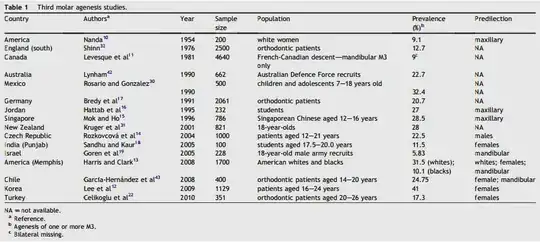I believe that if the claim is tweaked slightly, there is some evidence to support it. Originally it says "born without wisdom teeth", which to me sounds like they are missing all of their wisdom teeth. I haven't seen any studies that show that high a rate for that. Also, I believe everybody is "born" without them, since they generally don't start forming until age ten or so.
If it's changed to "will not develop one or more wisdom teeth", that's a bit easier to find support for. While this study was mainly looking at specific ethnic variations, they also include a table showing various studies done from 1954 to 2010:

The "Prevalence" column shows the rate where one or more third molars (wisdom teeth) are missing. You can see that only one of them (Lee et al, 2009) tops 35%, but there are several that get somewhat close. So even if 35% is a bit high, it's probably correct to say "One estimate says..."
The evolutionary aspect is trickier, but it's clear that the trait is inheritable. Sampling shows that it varies tremendously by ethnicity:
Based on large samples, agenesis of third molar ranged from 0.2% in Bantu speakers from Angola (6) to nearly 100% in Mexican Indians (7). Evidence supporting a genetic etiology for tooth agenesis and their shape is well established (8–10).
The study that's from goes on to examine specific mutations in the PAX9 gene and their effects relating to dentition, in case you're interested.
Note that it doesn't say "they will disappear", just that their formation is based on an inheritable trait. It could go either way from here, as always.
